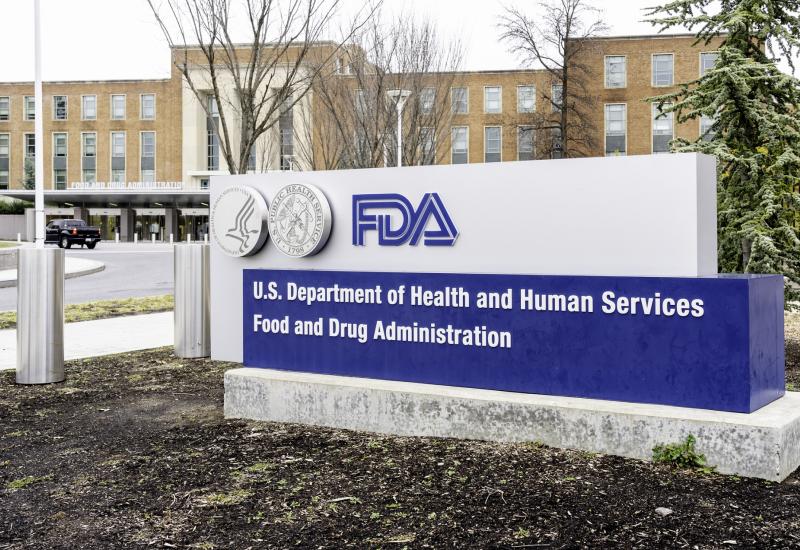
FDA green and red lights: June 2024
Merck and Daiichi’s first ADC attempt is knocked back, while Geron gets its inaugural approval.
Merck and Daiichi’s first ADC attempt is knocked back, while Geron gets its inaugural approval.

Last month the US FDA granted eight oncology green lights, but the big regulatory news was the rejection of Merck & Co and Daiichi Sankyo’s patritumab deruxtecan, the first fruit of the partners’ $5.5bn ADC collaboration.
Of the eight nods, seven involved new uses for already approved drugs. The exception was Geron’s Rytelo, which got its first go-ahead for low to intermediate-risk myelodysplastic syndromes patients with transfusion-dependent anaemia.
This outcome looked likely after a favourable FDA adcom in March, despite scathing briefing documents. The main question now is whether Geron can attract a partner or buyer, or whether it will have to launch Rytelo itself. The group’s stock, which climbed 20% on news of the approval, has sunk back to levels seen before the FDA's decision.
At least Geron has an approval under its belt, which is more than can be said for the Merck and Daiichi tie-up. The companies had been seeking an accelerated nod for patritumab-dxd, a HER3-targeting ADC, for third-line or later locally advanced or metastatic EGFR-mutated non-small cell lung cancer.
Merck and Daiichi said the CRL related to third-party manufacturing issues, rather than any questions about efficacy or safety. It is as yet unclear when the groups might resubmit, but for now they are well ahead of the rest of the HER3 ADC pack.
Endometrial battle
Meanwhile, June also saw new uses for seven cancer drugs, including duelling PD-(L)1 inhibitors in first-line endometrial cancer. Merck has the upper hand here, with Keytruda plus chemo getting the thumbs up in an all-comers population, irrespective of mismatch repair (MMR) status. Meanwhile, AstraZeneca’s Imfinzi plus chemo will in the US be restricted to MMR-deficient disease.
There could be another twist in this story soon, with GSK’s Jemperli heading for a decision in August in first-line endometrial cancer irrespective of MMR status.
Another closely fought battleground is KRAS G12C inhibition, and here Bristol Myers Squibb got one up on its rival Amgen with accelerated approval for Krazati in the new use of second-line colorectal cancer. What’s more, the other big pharma KRAS players don’t seem to be going after colorectal.
Krazati also recently got a win in its confirmatory trial in its initial use, second-line NSCLC, although overall survival results weren’t reported. Bristol will be hoping to avoid the trial conduct issues that ultimately led to a CRL for Lumakras in December, but even if it does there are still question marks over the $4.8bn it paid for Krazati’s originator, Mirati.
Epkinly entry
Another expanded approval was granted to AbbVie and Genmab’s CD20 x CD3 bispecific Epkinly, for third-line or later follicular lymphoma, a slow-growing form of non-Hodgkin’s lymphoma.
Approval was based on the phase 1/2 Epcore NHL-1 study, which found an 82% ORR, and a 60% complete response rate, among 127 FL patients. These results will need to be replicated in the ongoing Epcore FL-1 second-line confirmatory trial; data could come in 2028.
Epkinly previously had an accelerated nod for third-line-plus DLBCL, a more aggressive type of NHL.
The partners’ closest rival in the CD20-targeting T-cell engager space is Roche, which markets Columvi for DLBCL and Lunsumio for FL. Meanwhile, Regeneron’s odronextamab was knocked back by the FDA in March; that group had been seeking the go ahead in both late-line DLBCL and FL.
Selected June 2024 US regulatory decisions in oncology
| PDUFA date | Outcome | Drug | Company | Indication | Note |
|---|---|---|---|---|---|
| 16 Jun | Full approval, 6 Jun | Rytelo | Geron | Transfusion-dependent anaemia in low-risk MDS | Accepted for standard review 22 Aug 2023 |
| ? | Full approval, 12 Jun | Retevmo | Lilly | Use in 2+ year-olds for iodine-refractory RET-fusion thyroid cancer | Already had AA for 12+ year olds in this indication |
| 15 Jun | AA, 13 Jun | Augtyro | BMS (ex Turning Point) | r/r NTRK fusion +ve solid tumours | Already had AA for Ros1+ve NSCLC |
| 21 Jun | Full approval, 14 Jun | Blincyto | Amgen | Early-stage, CD19-positive, Philadelphia chromosome-negative B-ALL in consolidation phase | Already had full approval for other B-ALL settings |
| ? | Full approval, 17 Jun | Imfinzi | AstraZeneca | 1st-line dMMR endometrial cancer, Imfinzi + carboplatin + paclitaxel, followed by Imfinzi maintenance | Filing acceptance date and PDUFA unknown |
| 21 Jun | Full approval, 17 Jun | Keytruda | Merck & Co | 1st-line stage III-IV endometrial carcinoma | Accepted for priority review 20 Feb |
| 21 Jun | AA, 21 Jun | Krazati | Bristol Myers Squibb | Erbitux combo in 2nd-line KRAS G12C+ve colorectal | Already had AA for 2nd-line NSCLC |
| 26 Jun | CRL, 26 Jun | Patritumab deruxtecan | Merck & Co/Daiichi | 3rd-line EGFR-mutated NSCLC | CRL related to 3rd-party manufacturing issues |
| 28 Jun | AA, 27 Jun | Epkinly | Genmab/Abbvie | 3rd-line follicular lymphoma | Already had AA for 3rd-line DLBCL |
Note: AA=accelerated approval. Source: company statements.
857













